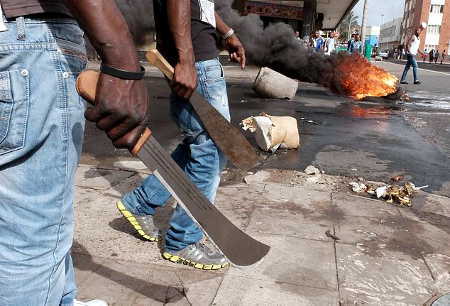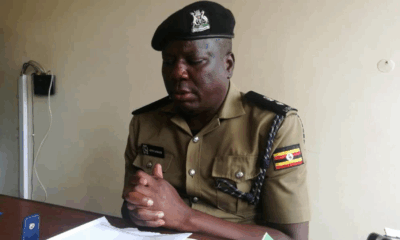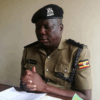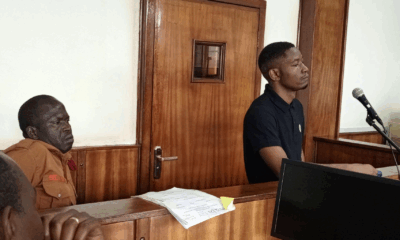News
S. Africa Violence; Ugandan in S.A s speak out

Foreigners in South Africa have also bought machetes to defend themselves if attacked by locals
According to a Ugandan national living in the coastal city of Durban where the violence started, Chinese, Bangladeshis and Pakistanis,” said a source who preferred anonymity.
Since the violence started last week, five foreigners, including Malawians and Ethiopians have been killed while thousands more have been forced into Displaced People’s Camps.
The ministry of foreign affairs on Friday 17, 2015 released a press release noting that Uganda’s high commission in Pretoria had not received any information suggesting any Ugandan had been killed in the violence. Our source who lives in Durban too confirmed that no Ugandan had by Thursday 16/4/2015, been killed in the xenophobic violence.
He attributed it to the fact that the violence was concentrated in slum areas inhabited mostly by foreigners from the SADC region.
But Uganda’s Minister for Information and National Guidance Brig. Jim Muhwezi said that the Ugandan government intended to contact its high commission in South Africa to work out arrangements to facilitate the return of any Ugandans who may want to return because of the violence. On Thursday, Malawi was the only country to confirm that it would repatriate its nationals back home.
It is estimated that three million Zimbabweans are living in South Africa, although most them are illegal.
“You see, because of the provision that all SADC nationals can enter South Africa without a Visa and stay for not more than two months, there has been an influx of people into South Africa from the trading block,” He adds however that many of the foreigners have abused their privilege and overstayed the two months.
While the recourse to violence has been criticised, some people believe anti-foreigner sentiments expressed by unemployed South Africans are justified as they represent loss of would-be sources of livelihood opportunities.
“Most of these illegal migrants do not want to rent houses and prefer to erect make-shift structures or sleep in containers where they work from. Others can also accept much less money to do jobs in restaurants and other places which an ordinary South African cannot.”
“If you employ a Ugandan, he can be happy with 200 dollars a month, which a South African cannot.”
While the violence started in Durban last week, by Wednesday this week, attacks had spread to S.A’s commercial capital Johannesburg.
Anti-foreigner sentiments in South Africa are not only fuelled by unemployment but also the sense that unemployed foreigners are perpetrating crime such as highway robberies, drug trafficking and human trafficking.
According to bbc.com, the South African government has ordered Police to stop the violence.
But campaigners in South Africa blamed the government of President Jacob Zuma for doing too little or turning a blind eye towards the violence.
Two foundations named after anti-apartheid leader Nelson Mandela, who died in 2013, and Ahmed Kathrada, another campaigner against the white racist rule that ended in 1994 blamed Zuma’s government for ignoring the crisis.
“For too long, South Africans in leadership positions have either ignored the crisis or stoked the fires of hatred,” said the foundations in a statement.
According to Medi Ssemakula, a Ugandan living in Johannesburg, some African governments whose nationals are suffering xenophobic violence, need to add pressure on the government of South Africa to stop its nationals from venting anger against them.
“African governments need to respond vigorously to the violence against their nationals by asking South Africans to go home as well,” said Ssemakula
“When the South African government deported 125 Nigerian nationals in 2012 over alleged fake yellow fever vaccinations, the Nigerian government hit back by deporting South African nationals allegedly over invalid health documents.” said Ssemakula.
Ssemakula argues that the heavy presence of South African companies across the continent means that the S.A government cannot afford to keep quiet when their businesses elsewhere in Africa are threatened.
Comments


















